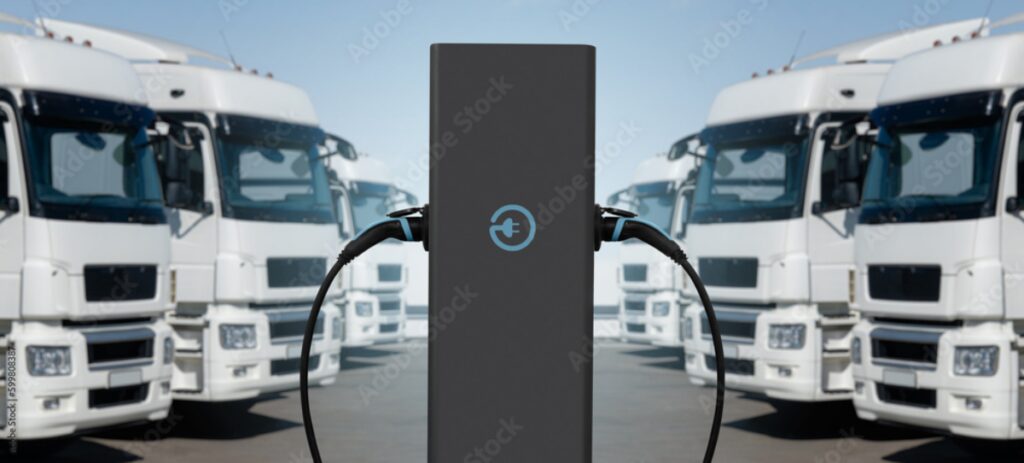Press statement
Filters
NEW REPORT: Fossil fuel-free technologies can slash 95% of steel related emissions from vehicles
The auto industry can eliminate more than 95% of steel-related emissions from the average vehicle by switching to fossil fuel-free steel, according to a new report released today by the International Council on Clean Transportation (ICCT).
Europe sets the bar high and approves a 90% CO2 emission reduction target in new trucks by 2040
Berlin, 10 April — Today, in a landmark achievement, the European Parliament approved a mandatory target to reduce 90% of CO2 emissions from new trucks by 2040. The regulation raises the ambition of previous EU legislation and widens the scope of vehicles covered, setting the stage for one of the world’s most robust regulatory climate […]
Studies for the Implementation of an Emissions Control Area (ECA) in the North-East Atlantic Ocean are already being developed by Portugal with the support of ICCT
Congratulations to our talented marine team for being selected to lead an official study on the impacts of a proposed Emission Control Area in the adjusted EU countries in the North Atlantic (AtlECA).
California sets global precedent with first-ever 100 percent sales requirement for zero-emission trucks, paves the way with zero-emission fleet requirements
Today, the California Air Resources Board (CARB) approved a new rule requiring fleets operating in California to deploy an increasing percentage of zero-emission vehicles (ZEV) starting in 2024. The rule also sets a 100% zero-emission sales requirement for medium- and heavy-duty vehicles starting in model year 2036. This new rule is the first in the world to extend ZEV requirements to large commercial fleets, and it complements existing ZEV sales requirements for manufacturers while continuing California’s groundbreaking work to advance progressive ZEV policy.
EPA must move quickly to finalize greenhouse gas emissions rule for heavy-duty vehicles
Today, the U.S. Environmental Protection Agency’s (EPA) Office of Transportation and Air Quality issued a proposed rule to set new greenhouse gas (GHG) standards for heavy-duty vehicles sold between model years 2027 and 2032. These proposed “Phase 3” standards will dramatically reduce the climate impact of the heavy-duty sector by requiring manufacturers for the first time to sell zero-emission trucks and buses.
Europe proposes world-leading decarbonization targets for trucks and buses
The European Commission’s CO2 standards proposal for trucks and buses sets attainable emission reduction targets to break the current impasse and accelerate the zero-emission transition.
Protecting citizens’ health in Europe will require stricter air pollution limits than the proposed Euro 7
Press statement on the Euro 7 emission standards proposed by the European Commission
Proposed EPA emission standards will deliver cleaner trucks and buses, but more is needed
8 March 2022 (Washington DC) – Yesterday the U.S. Environmental Protection Agency’s (EPA) Office of Transportation and Air Quality issued a proposed rule to limit emissions of nitrogen oxides and greenhouse gases from new heavy-duty engines and vehicles. Existing pollution limits on diesel trucks were set more than twenty years ago. This Administration deserves tremendous […]
The EPA GHG rule represents progress toward U.S. climate goals and decarbonization of the vehicle fleet
20 December 2021 (Washington, DC) — The Revised 2023 and Later Model Year Light-Duty Vehicle Greenhouse Gas Emissions Standards issued today by the U.S. Environmental Protection Agency will reduce GHG emissions from cars and light trucks by 5% to 10% per year in model years 2023 to 2026 (9.8% in 2022–2023, 5.1% in 2023–2024, 6.6% […]
The SAFE rule is fundamentally flawed
March 31, 2020 (Washington, D.C.) — Earlier today, the U.S. Department of Transportation’s National Highway Traffic Safety Administration (NHTSA) and the U.S. Environmental Protection Agency (EPA) issued the Safer Affordable Fuel-Efficient (SAFE) Vehicles Rule for Model Years 2021–2026 Passenger Cars and Light Trucks. The final rule reduces the annual fuel economy improvement required for new […]



